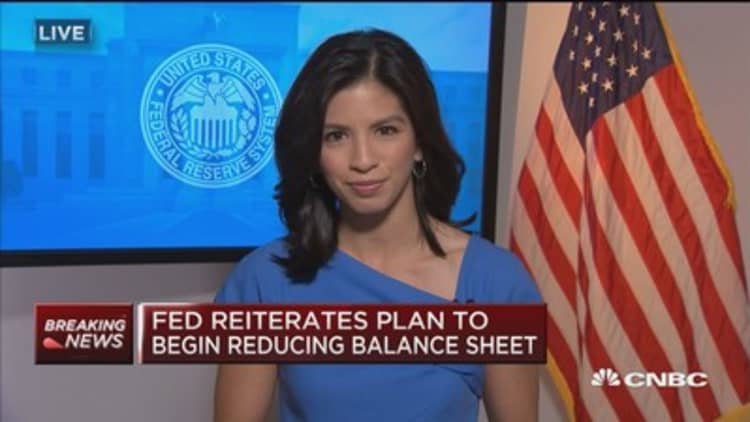
The U.S. economy continues to churn out jobs and grow at a steady pace, with investment and consumer confidence both healthy and only moderate signs of risk in financial markets, the U.S. Federal Reserve said on Friday in its semiannual report to Congress.
With stock markets near record levels, and interest rates and credit conditions still loose, the report gave detailed attention to whether the financial system and bond markets posed any particular threat to the country's eight-year economic expansion.
The answer so far is no, said the Fed, noting that there is little evidence of a liquidity crunch in the corporate or other bond markets, and no evidence that rising asset values pose a problem. The structure of the corporate bond market is changing with new regulations, the Fed said, but by traditional measures shows only minimal strain in adapting.
"Vulnerabilities in the U.S. financial system remained, on balance, moderate," concluded the report, submitted to Congress on behalf of the Fed's Washington-based Board of Governors. "Valuation pressures across a range of assets and several indicators of investor risk appetite have increased further...However, these developments in asset markets have not been accompanied by increased leverage."
The combination of rising asset values and rising leverage is considered particularly toxic, indicating that investments are being made with borrowed money and leaving investors unable to repay those debts if the value of the underlying assets decline.
U.S. Treasury yields rose after the report, with the yield on the benchmark 10-year note near a more than eight-week high. U.S. stocks edged higher.
The release of the report on Friday comes ahead of Fed Chair Janet Yellen's appearance next Wednesday and Thursday before the House and Senate committees that oversee the central bank and related issues. The roughly 60-page document is largely a review of economic and policy developments since the last report, in February.
In this instance the document took on a steady-as-she-goes quality. Growth in the first quarter was slow at about 1-1/2 percent on an annualized basis, and inflation took a step backward. But consumer confidence remained strong, and "business investment has turned up....The housing market continues its gradual recovery. Economic growth has also been supported by recent strength in foreign activity."
The government on Friday said nonfarm payrolls surged by 222,000 in June and workers put in more hours but average hourly earnings grew a modest 0.2 percent.
Along with the discussion of financial conditions, however, the Fed did highlight some long-term problems. The central bank noted that weak productivity growth may become entrenched as a "new normal," and could be one reason wage growth remains weak.
It also noted the continued gap in unemployment rates between whites and blacks and Hispanics.

